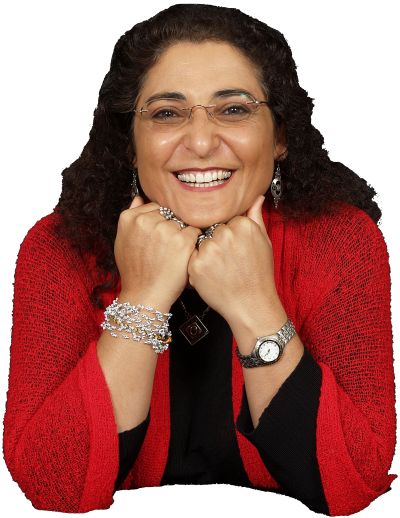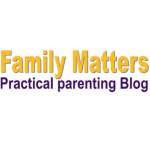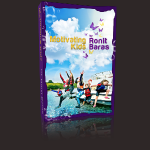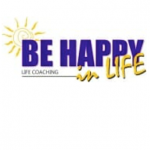The Wellbeing 5 Project
Ronit Baras
Family Matters
The Relationship Wellbeing 5
5 Simple Questions to help with relationship wellbeing with answers from Experts, Thought Leaders, Campaigners & Advocates
Ronit Baras
Ronit is a widely recognised international Parenting and Happiness Coach. She is also a mother, world traveler, educator, life coach, journalist, author and public speaker. She is the creator of Family Matters, a website for families all over the world, with the aim of “making the world a better place, one family at a time.”
Ronit has twice been nominated as Australian of the year for her community work & has also been nominated for the International Women’s Day Peace award by the Women’s Federation for World Peace. She is an expert in personal development, specializing in accelerated learning, communication, relationships, parenting, work-life balance, self esteem, confidence and stress management.
Family matters contains a wealth of information & advice including over 1,6oo posts discussing topics such as family matters, practical parenting, relationships and marriage, personal development, children, education and learning, happiness and self esteem.
Find out more Ronit & Family Matters here

The Relationship Wellbeing 5 with Ronit Baras
1. What is your favourite quote, anecdote, proverb or experience that helps with relationship wellbeing?
Ronit:
I follow the quote that says that love is a verb, an action, not a feeling. As a person who deals with feelings all the time, I used to think that love is just a feeling. I learned over the years that in the name of feeling loving, people do hurtful things and they totally justify their actions. So loving is not enough! It is true with parents and children and with couples and it is true for our relationship with ourselves.
Love, in my definition, is the intention and actions we take, with acceptance, respect and kindness, to make others (or the other part of ourselves) be healthy, happy, and successful. It is easy to understand when we talk about love for children. We are willing to do a lot for them. This same love we can have towards ourselves, our partners, our families, our friends, our colleagues and our environment.
The greatest action is kindness. Love is a bucket; we fill our love bucket when we fill other’s bucket by making them feel good about themselves. I learned the same model when I did my Reiki course. When I Reiki others, I don’t give them energy, I am just a vehicle of this energy and while it is passing through me, it heals me too. Same with love. When we give love, we have more of it.
The problem with love is when we empty other people’s buckets by hurting them, being aggressive, rude, yelling, threatening, trying to change them, by criticising, judging, complaining or expressing disappointment, we make holes in their buckets but also in our own bucket.
Simple, isn’t it?!
So, if you don’t feel loved. You have holes in your bucket, give and you shall receive!
2. What is your top piece of advice for relationship wellbeing?
Ronit:
We are born with the desire to please our parents. They smile and are happy when we do what they want us to do, and this is how they condition us to do what is expected of us. When we do not comply, they punish us.
Sadly, we go into an education system that even expands on this conditioning. We spend years of our lives in the desire to please our teachers. If we do what they want us to do, they give us a reward and if not, they punish us.
We all have the “disease to please” and are addicted to approval. It is a trap. A dangerous trap. I call it the approval trap.
Approval is a drug and much like a real drug, it pollutes our mind and body. We get a small kick, it fades quickly, and we need more and more of it.
All humans are drug addicts, and all parents are drug dealers. Drug addict are addicted to approval and drug dealers are addicted to being pleased. Both develop dependency on their drug and when they don’t get it, they lose it.
Drug addicts function from a fear position, and not from love. If the idea of love is to make others feel good about themselves, than pleasing them or giving them approval does not make them feel good but only increase their feeling of being dependent. The more you give it, the more they want and most of the time they live with withdrawal symptoms. Every discomfort we have and the way we react to it, is in fact, withdrawal symptoms.
Good relationship cannot exist between drug addicts because what rules their life is their drug and not love. They will do anything, absolutely anything, to get their drug and relationships will always come after.
You are probably wondering how do we know if what we do is to seek approval or just to make the other person happy? Well, this is when your feelings can be used as a guide. When you do what you do and feel good about it, it is love, if it doesn’t make you happy doing it, it will result in resentment. That’s the disease. You are trapped. This is your drug.
Good relationship is between two sober people. To be sober, we need to be aware of our addiction and remind ourselves: the only person who needs to please me, is me!
3. What is the one change in the world that you would like to see? (in your area of wellbeing or in the world in general or both)
Ronit:
I would love to see a whole world of people who learn to love themselves and consider themselves perfect, with all their flows.
I believe that it all starts with changing the way our education system works. We focus so much on academic achievement, literacy and numeracy and forget emotioncy. We need to give more attention to EQ than to IQ. I understand why the main focus is on children, but we can’t shift our society if we don’t focus on the main socialising agents of our society: parents and teachers. I believe we can help teachers by helping them increase their own emotional intelligence and bring parents on board and help them help their children rather than criticise them for all the ill in our society. We have a social responsibility to all people around us and their health and wellbeing is the key to a happy, healthy, and successful society.
I like considering the society as an eco-system. If one thing is out of balance, the whole system is out of balance.
my dream is to see a change in education system when parents, teachers and students are equally important and the foundation of it is teaching the art of increasing emotional intelligence, self-love and bucket filling.
4. Which resources (books / websites / videos etc) for relationship wellbeing would you recommend?
Ronit:
Wow, there are so many. I believe that books have changed my life. I consider them a divine guide. As a child, I used to go to the library and felt that books were calling me to take them. (that’s why I started writing books, in hope to change others’ lives)
Emotional intelligence by Daniel Goleman was a book that has changed my life. It was significant to me because as a special education teacher I learned how to use IQ tests and reading the book made a big switch in my professional and personal life. From that moment on, I changed my philosophy about education. When children are in a stable emotional state, they learn from the molecules in the air. Academic achievement just happens naturally.
The second book that has made a huge change in my life is “How full is your bucket” by Tom Rath. It was easy to understand and very easy to share with children. I was amazed how this philosophy is a thread in many traditions, spiritual beliefs. Recently, there was much emphasis on health and wellbeing and most of them has a kindness component in them. The filling bucket model present all those theories brilliantly. Just three weeks of practicing filling up buckets can change your life. Try it!
The last book I would like to recommend is The 5 love languages by Gary Chapman I believe everyone needs to understand that there is no one way to express and receive love and that our way is not the right or the only way. It is such a shame to see so much heartache and pain in relationship because people don’t get that there are different ways to express love.
5. What’s the one thing that always makes you smile?
Ronit:
My granddaughter is that one thing that always makes me smile. When she was born, inside me, a new love was born.
I believe we bring children to the world to learn to love ourselves and I have amazing three children who taught me to love myself. When the second was born I learned that love expands with their birth. As they grew, my love for them grew as well.
It was the same when my granddaughter was born. My heart grew so much. The thought of her makes me so happy. When I’m sad, I see her in my mind and my heart smiles immediately. Lucky me, I spend time with her twice a week, so I don’t need to imagine her much.
One Bonus Question, is there anything else pertinent that you would like to add to the discussion?
Ronit:
Relationships are wonderful and challenging. It is an exchange or energy. Think of us as batteries. Two people or more with their own batteries, searching for others to help them recharge. Our relationships can charge our battery or deplete it. When relationships are good and happy, respectful, kind and loving, everyone is charged. When the relationships are sad, angry, resentful, and hateful, it depletes everyone’s battery.
We can’t be in a charging mode at all times because we are just different people with different needs and wants but we need to charge faster than it takes us to deplete our battery. We are like smart phones, that must be plugged in to the electricity from time to time in order to charge, and some apps and programs are very demanding on the battery. We need to surround ourselves with charging people and stay away from situations that empties the battery fast like: arguments, judgment, conflicts and anger. Using feelings as a barometer is a good way to check how much charge you have in your battery. Still, the most effective way to charge is self-love.
Further Exploration - Ronit Baras

Website: Family Matters
Ronit's website Family Matters containing over 1,400 posts on subjects including family matters, practical parenting, relationships and marriage, personal development, children, education and learning, happiness and self esteem. Also contains information about Ronit, her books and how to get in touch

Ronit's Books
Ronit's books; "Motivating Kids", "Be Special, Be Yourself For Teenagers", Reflections, "In the Outback with Jasmine Banks" and "The Will"

Be Happy in Life
Ronit's life coaching website containing information about life coaching, the training & mentoring and school coaching that she offers and how to get in touch
Social Media - Follow Ronit & Family Matters Below
More Love & Relationship Wellbeing 5 Interviews Below

More love & relationship Wellbeing 5 Interviews
With answers from experts, thought leaders, advocates and campaigners to help with love & relationship wellbeing



